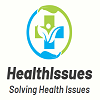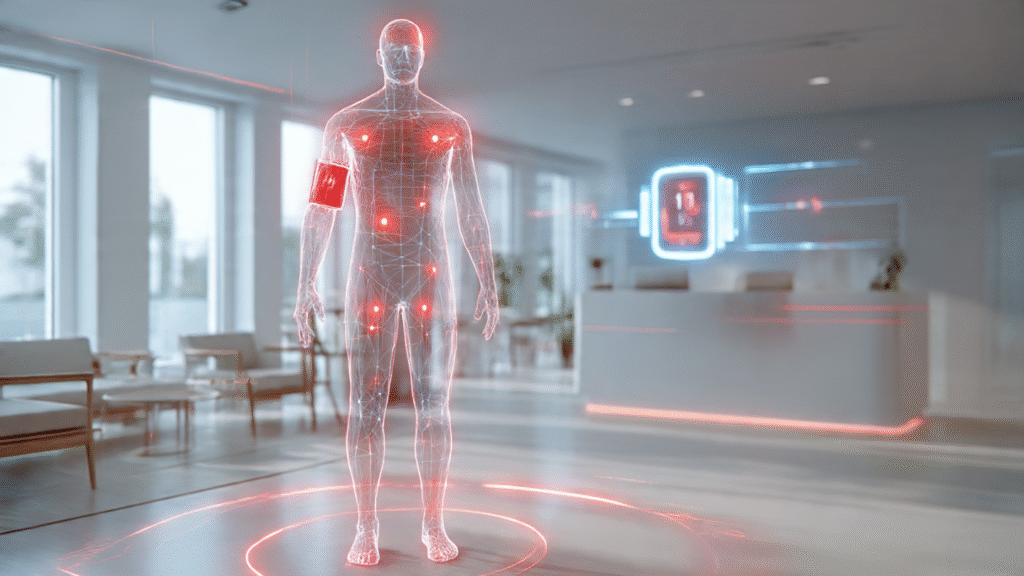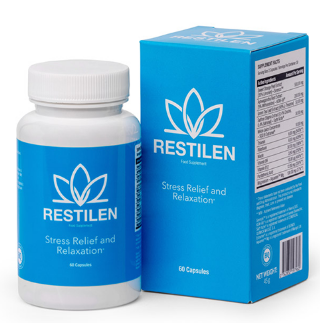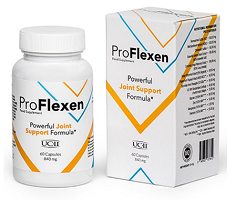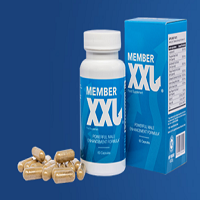5 Silent Signs of High Blood Pressure You Shouldn’t Ignore in 2025
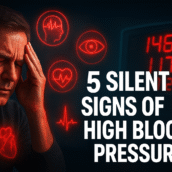
Introduction: The Hidden Danger of High Blood Pressure
High blood pressure, also known as hypertension, is often called the “silent killer.” Why? Because it rarely shows obvious symptoms until it’s too late. According to the World Health Organization (2024 report), nearly 1.28 billion adults worldwide live with high blood pressure — yet 46% are unaware of their condition.
In 2025, hypertension remains a leading risk factor for heart attacks, strokes, and kidney disease. What’s worse is that many people dismiss the subtle, silent signs their body gives. Identifying these early warning signals could literally save your life.
In this article, we’ll explore:
- What high blood pressure really is.
- Why recognizing subtle signs is critical in 2025.
- 5 silent signs of high blood pressure you shouldn’t ignore.
- A real-life case study of early detection.
- Common mistakes people make when managing hypertension.
- Tools, resources, and lifestyle strategies to stay in control.
Table of Contents
- What is High Blood Pressure?
- Why Early Detection Matters in 2025
- Case Study: How David Discovered His Hypertension Early
- 5 Silent Signs of High Blood Pressure
- 1. Persistent Headaches
- 2. Dizziness or Lightheadedness
- 3. Blurred or Double Vision
- 4. Shortness of Breath or Chest Pressure
- 5. Fatigue and Trouble Sleeping
- Common Mistakes to Avoid
- Tools & Resources to Monitor Blood Pressure
- Additional Data & Trends
- Conclusion & Next Steps
- FAQs
What is High Blood Pressure?
High blood pressure occurs when the force of blood against artery walls remains consistently too high.
- Normal: below 120/80 mmHg
- Elevated: 120–129 / <80 mmHg
- Hypertension: 130/80 mmHg or higher
If left untreated, hypertension damages arteries, strains the heart, and increases the risk of stroke, kidney disease, and vision problems.
According to Statista (2025), cases of hypertension are expected to rise by 15% in developing countries over the next decade due to poor diets and sedentary lifestyles.
Why Early Detection Matters in 2025
- Silent Epidemic: Nearly 1 in 2 adults with hypertension don’t know they have it.
- Healthcare Costs: In the U.S. alone, hypertension-related costs exceed $130 billion annually (CDC, 2024).
- Future Risks: By 2030, WHO predicts hypertension could become the leading cause of premature deaths globally.
The earlier you recognize the silent signs, the more likely you can prevent long-term complications.
Case Study: How David Discovered His Hypertension Early
David, a 39-year-old software engineer from Nairobi, constantly brushed off his frequent headaches and fatigue as work stress. During a workplace wellness program in 2024, he took a free blood pressure test.
- Reading: 145/95 mmHg (stage 2 hypertension).
- Action: He adopted dietary changes, exercised regularly, and began routine monitoring.
- Result: Within 6 months, his blood pressure dropped to 125/80 mmHg without medication.
Lesson: Even “minor” symptoms like headaches or tiredness can be silent warning signs.
5 Silent Signs of High Blood Pressure
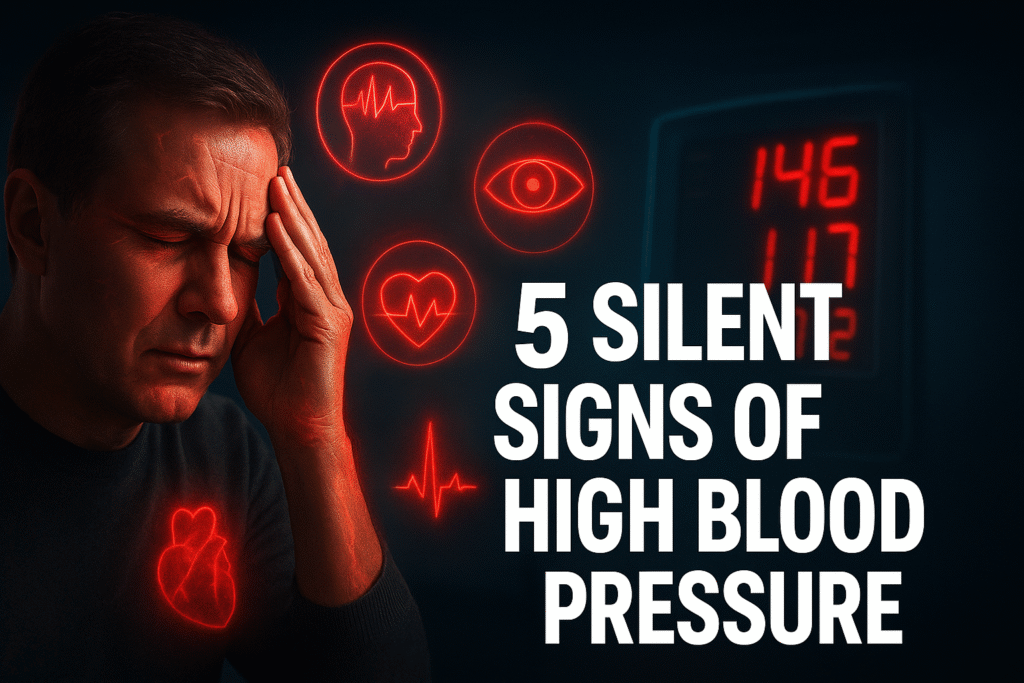
1. Persistent Headaches
Frequent headaches, especially in the morning, can signal rising blood pressure. The pressure on blood vessels in the brain may trigger discomfort.
- Study (Journal of Hypertension, 2023): 25% of newly diagnosed patients reported morning headaches as their first noticeable symptom.
- Tip: Don’t dismiss chronic headaches as just stress. Track them alongside blood pressure readings.
2. Dizziness or Lightheadedness
Unexplained dizziness or fainting spells can indicate reduced blood flow to the brain caused by hypertension.
- Warning: Severe dizziness can increase fall risks, especially in older adults.
- Pro Tip: If dizziness persists, seek medical evaluation — it may be linked to heart or circulation issues.
3. Blurred or Double Vision
High blood pressure can damage tiny blood vessels in the eyes, leading to hypertensive retinopathy.
- Stat (American Heart Association, 2024): People with uncontrolled hypertension are 4x more likely to develop vision problems.
- Check: If you experience sudden vision changes, it could be a red flag.
4. Shortness of Breath or Chest Pressure
Hypertension makes the heart work harder, which can cause chest tightness or difficulty breathing during light activity.
- Case Reports: Early breathlessness is often misattributed to being “out of shape.”
- Reminder: This is not a symptom to ignore. It could also signal heart disease.
5. Fatigue and Trouble Sleeping
Chronic tiredness, restless nights, or waking up feeling drained may signal high blood pressure disrupting oxygen supply.
- Sleep Connection: Hypertension and sleep apnea often go hand in hand.
- Pro Tip: If you feel persistently exhausted despite resting, check your blood pressure.
Common Mistakes to Avoid
- Ignoring symptoms – Many dismiss headaches or fatigue as “normal.”
- Self-diagnosing – Symptoms alone can’t confirm hypertension. Always measure your blood pressure.
- Relying on medication only – Lifestyle changes (diet, exercise, stress management) are equally crucial.
- Inconsistent monitoring – Hypertension can spike without warning; check regularly.
- Skipping checkups – Annual physical exams can catch hypertension before it escalates.
Tools & Resources to Monitor Blood Pressure
- Omron Platinum Blood Pressure Monitor – Accurate, home-based monitoring.
- QardioArm – Smart BP cuff with app integration.
- Apple Watch Series 9 (2025 update) – Tracks blood pressure trends and alerts.
- MyFitnessPal – Track diet and sodium intake.
- American Heart Association Resources – Free guides on diet, exercise, and hypertension.
Additional Data & Trends
- Global Survey (2024): 60% of adults under 45 are unaware of their hypertension until routine tests.
- AI in Healthcare (2025): Wearable devices now predict blood pressure spikes with up to 85% accuracy.
- Lifestyle Factor: Diets high in sodium and processed foods remain the biggest contributors to rising cases worldwide.
Conclusion & Next Steps
High blood pressure doesn’t shout — it whispers through subtle, silent signs like headaches, dizziness, vision issues, breathlessness, and fatigue. Ignoring these warnings could put your heart, brain, and kidneys at risk.
The solution is simple: stay alert, monitor regularly, and make proactive lifestyle changes.
👉 Want a free blood sugar solution click here
FAQs
Q1: What is the first silent sign of high blood pressure?
A: Persistent headaches and dizziness are often the earliest indicators. However, only a blood pressure test can confirm hypertension.
Q2: Can stress alone cause high blood pressure?
A: Stress can temporarily raise blood pressure, but chronic hypertension usually results from a mix of genetics, diet, lifestyle, and age.
Q3: How often should I check my blood pressure?
A: Adults should check at least once every 6–12 months. If you have risk factors, monitor weekly or use a home device.
Q4: Is high blood pressure reversible?
A: Yes. With lifestyle changes (diet, exercise, weight loss, reduced salt), many people lower their blood pressure without long-term medication.
Q5: Can children or teens have high blood pressure?
A: Yes. Rising childhood obesity rates mean more children are being diagnosed. Regular pediatric checkups are important.
Q6: What foods worsen high blood pressure?
A: Processed meats, salty snacks, fast food, sugary drinks, and alcohol all contribute to hypertension.
Q7: Does drinking water help lower blood pressure?
A: Staying hydrated supports circulation, but water alone won’t prevent hypertension. Pair it with a balanced diet and exercise.
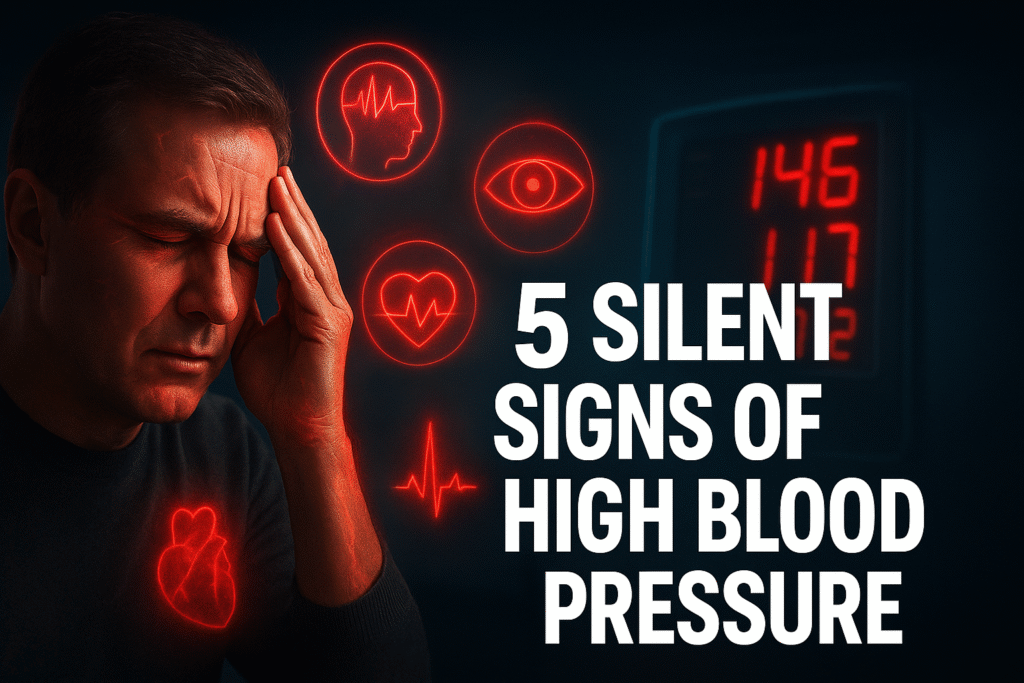
Recent Posts
- 5 Silent Signs of High Blood Pressure You Shouldn’t Ignore in 2025
- 5 Everyday Foods That Naturally Detox Your Liver (Backed by Science in 2025)
- Preventive Eye Care: 5 Essential Habits to Protect Your Vision in 2025
- The Sleep-Weight Connection: Fixing Insomnia to Lose Belly Fat
- The 30-Day Protein Reset: How to Use High-Protein Meals to Curb Cravings
